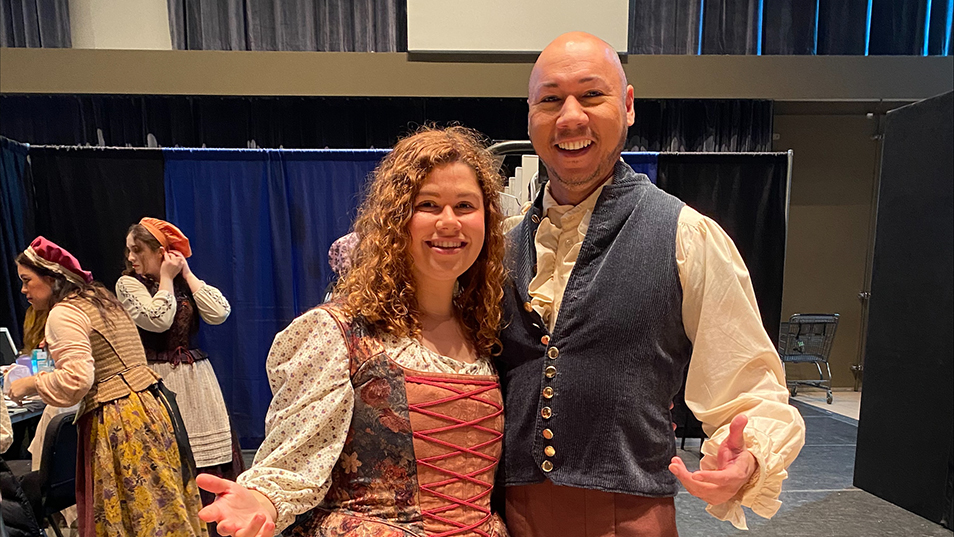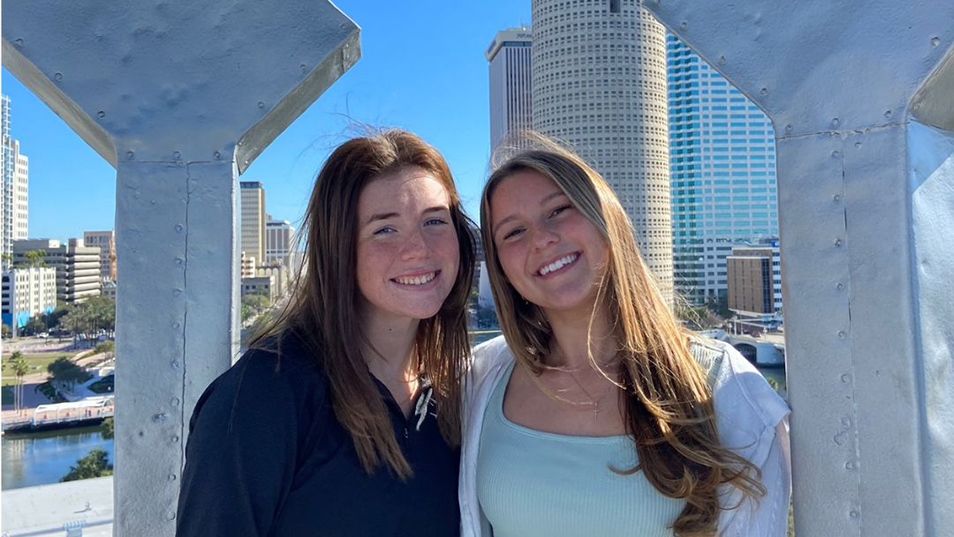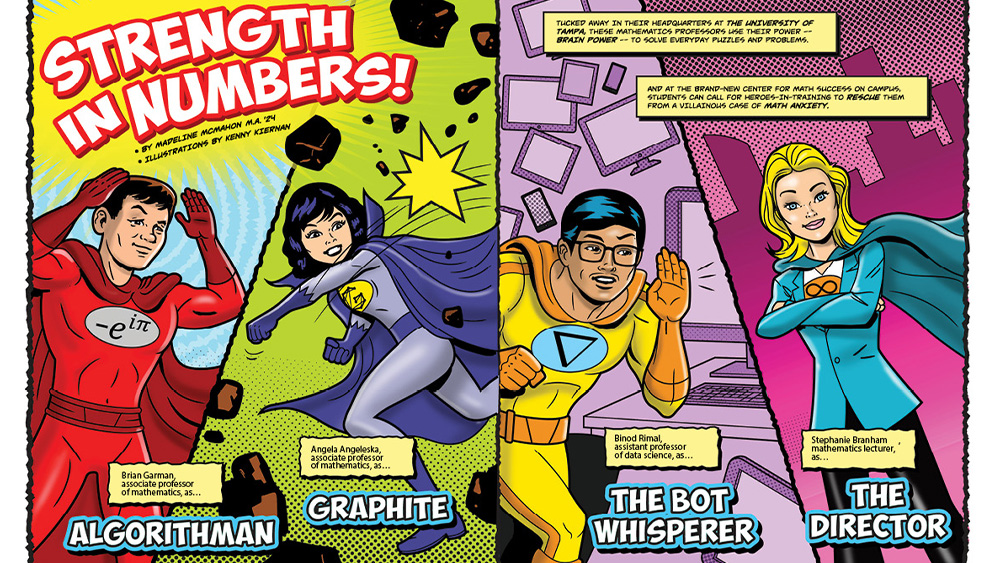Published: June 22, 2020
Senior Makes Strides Toward Sustainability
Internships give college students multiple opportunities: professional experience in the field of their choice, the chance to learn more about themselves and the ability to figure out exactly what they do and don’t want to do.
Political science major Katie Sturmer ’21 of Blue Grass, IA, says her internships have been some of her most eye-opening experiences in college.
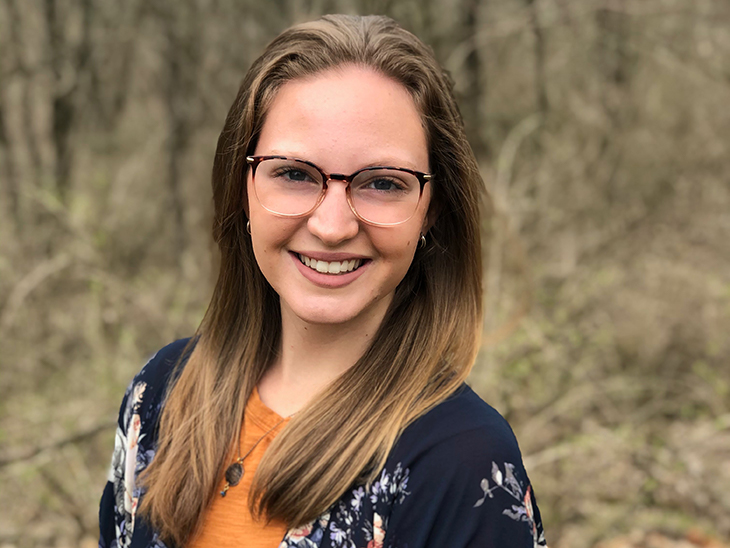 “I had to remember that my career journey didn’t stop and end at my major, and that it is an ever-evolving path,” said Katie Sturmer ’21, who has used internships to help guide her choice of major. Photo courtesy of Katie Sturmer
“I had to remember that my career journey didn’t stop and end at my major, and that it is an ever-evolving path,” said Katie Sturmer ’21, who has used internships to help guide her choice of major. Photo courtesy of Katie Sturmer
This summer, Sturmer has two: one with Habitat for Humanity as a resource development intern and the other with Seaside Sustainability as a project manager for grants. She started with Habitat working in its Tampa office, but transitioned in June to work remotely, as she does for Seaside Sustainability, which is based in Massachusetts.
“This summer is my opportunity to delve into the nonprofit sector,” said Sturmer. “I love nonprofits, because there’s so much diversity among their missions and how they serve their communities to make positive social change.”
Seaside Sustainability addresses sustainability in a broader sense by focusing on the well-being of society, the economy and the environment. The organization is dedicated to individual and community action, education and policy change. The mission for Habitat for Humanity is building homes, particularly for lower-income individuals and communities. Homes are built sustainably, increasing water and energy efficiency and material conservation in the construction process.
Sturmer’s main projects with Seaside Sustainability include fundraising and development, grant writing and a program called “green scholars,” which is an online curriculum that teaches students about sustainability and how to take action themselves in their communities. She also collaborates with other interns weekly on a variety of projects in the organization. With Habitat for Humanity, Sturmer works with the resource development team to secure funding, manage donors and raise awareness.
Sturmer works between 10 to 15 hours per internship per week in roles that have given her further experience, aside from her coursework, on how to educate and enact change in communities in regards to sustainability and conservation.
“My internships have helped me better define my career goals,” said Sturmer. “In the classroom, you learn a lot about the theory and concepts, however it’s during internships that you’re able to apply these concepts and see how they function in practice.”
Sturmer was originally a marine science major, and for a while, had imagined working in a lab for her career.
“Ever since I was little I had wanted to be a marine biologist and work with corals,” said Sturmer. “I have always had a passion for conservation.”
Last summer Sturmer interned with Mote Marine Laboratories working in the land-based coral nursery team in the Florida Keys, monitoring coral health, among other tasks. Sturmer says she learned a lot about the promise coral restoration efforts have on the overall conservation of reefs, but also realized she wouldn’t be fulfilled working in a lab.
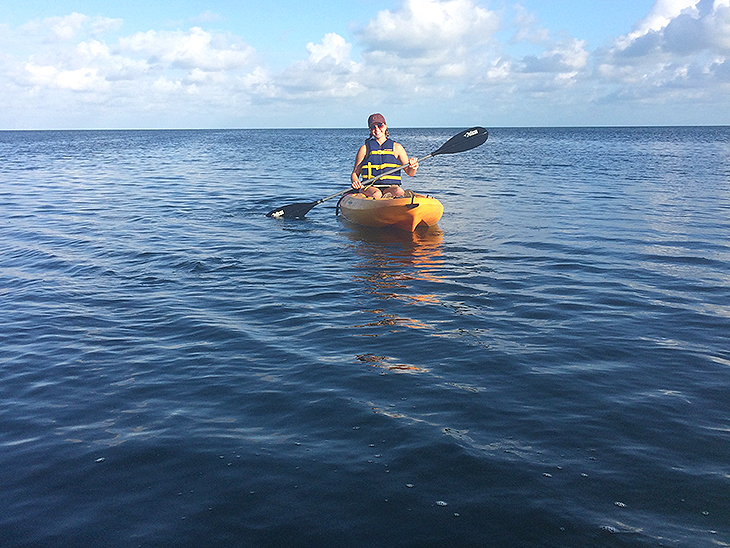
Last summer Sturmer interned with Mote Marine Laboratories working in the land-based coral nursery team in the Florida Keys. While she learned a lot about the promise coral restoration efforts have on the overall conservation of reefs, she realized she wouldn’t be fulfilled working in a lab. Photo courtesy of Katie Sturmer
“My internship in the Keys was probably one of the biggest moments of growth during my college career,” said Sturmer. “After my internship, I realized that I enjoyed working with people more to incite change, and the only way the restoration efforts were going to work was if there was effective policy in place to mitigate the human impact negatively affecting the reef.”
Sturmer re-evaluated her career goals and interests, and when she returned to UT in the fall after her internship in the Keys, she changed her major to political science, “where I can gain skills to create sustainable communities through policy and action.”
Starting her junior year of college with a major change was scary, Sturmer admits, but she never regretted it. Now, with her experience through her internships and new coursework, it’s reaffirmed her decision.
“I had to remember that my career journey didn’t stop and end at my major, and that it is an ever-evolving path,” said Sturmer. “I’m very happy with my switch, [and] I find a lot more enjoyment in my classes now than I did before.”
Rachel Killam, senior assistant director of career exploration for Career Services, says Sturmer’s situation is actually very common for college students.
“So many students think that you have to figure out your career right when you start college, but the reassuring reality is that students need time to pay attention to what sparks their interest, then test those interests out,” said Killam. “One of the best ways to explore major and career options is through a variety of experiences and especially through internships.”
Sturmer still has a passion for conservation research, but is now focused on effective policy action. She has plans of attending graduate school after UT, and wants to dive into academia to continue conducting research for policy change and conservation.
“Just because my major isn’t marine science or environmental science doesn’t mean that I can’t work in ocean conservation,” said Sturmer. “I have to remind myself that just because I changed my career focus doesn’t mean that I can’t have the impact I hope to have.”
Story by Mallory Culhane '21, journalism major

